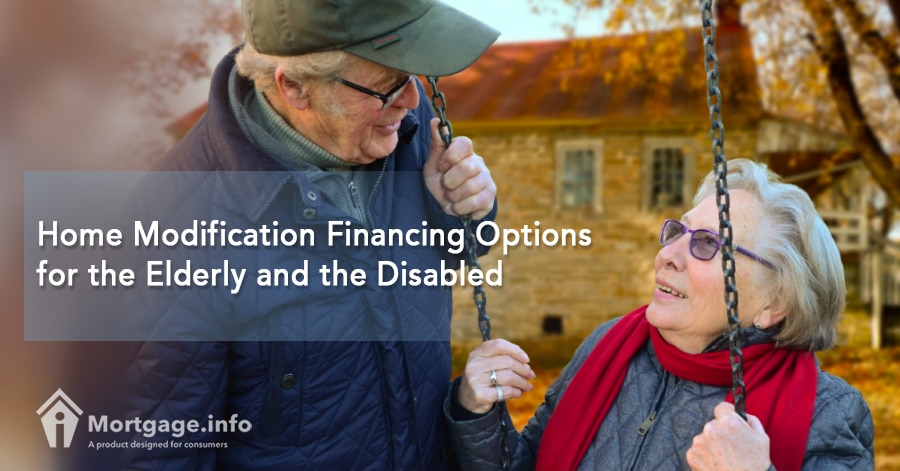
Are you or a family member elderly or disabled? You might find that the home you live in isn’t conducive to the conditions you or your family members have. In order to accommodate these needs, you’ll need money. Making accessible changes can often get costly, making it difficult for many people to afford. Whether it’s simple changes or something more complex, there are several financing options available.
Get Matched with a Lender, Click Here.
The Types of Modifications
First, let’s look at the various types of modifications you may make to a home. The options are literally endless, but some of the most common include:
- Chairlift for those restricted to a wheelchair and cannot climb the stairs
- Grab bars for the blind
- Fixtures that are easy to grab and use
- Enhanced lighting for easier viewing
- Security systems for safety as well as help for health emergencies
- Walk-in tubs for easier bathing
- Ramps for wheelchairs
This is just a sample of the modifications you can make to your home to make it easier for seniors and the disabled to comfortably live in the home. The financing options below often cover these changes and more in order to make it easier to live in your home.
Click to See the Latest Mortgage Rates.
Choosing the Right Options for Seniors and the Disabled
Usually, choosing the right options to make a home accessible for seniors and the disabled involves using a professional. An occupational therapist, nurse, or social worker can help you choose the right options. These professionals not only know what might help your loved one now, but also well into the future. Your needs may change as you age or as the disease progresses, depending on the issue at hand. A professional will recognize these changes and alert you of future needs to help you make the necessary changes now while you have the proper funding.
Financing Options for Your Home Modification
There are many financing options available to you including grants and loans. A few of your available options are below:
- Grants – You may find numerous grants at the state, local, and private level. For example, the VA and the USDA both have grant options for seniors and the disabled. The American Red Cross and ModestNeeds.org also offer grant options. A quick search online will turn up hundreds of options, each with their own requirements. Read the requirements carefully and apply as you see fit. Some entities offer grant money annually, while others offer a one-time grant. Know the expiration dates and apply accordingly.
- Low interest loans – Some lenders offer low interest loans with simple qualifying requirements to make it possible to finance your modifications. Unlike grants, you must pay these loans back, which means making sure you can afford the payments before accepting the funds.
- Non-profit organizations – It may even be possible to find ‘free labor’ from non-profit organizations that offer help to the elderly and disabled. Typically you have to cover the cost of the materials, but the labor, which is often the more expensive part of the process, is offered free of charge.
The key is to do your homework and ask a lot of questions. There is a lot of ‘free money’ out there for seniors and the disabled, but you have to look for it. A quick search online can get you started or you can talk with your medical professional to determine what options you have. Don’t give up as you search for help. A home modification to make it easier to remain in your home is crucial to your health and well-being.
